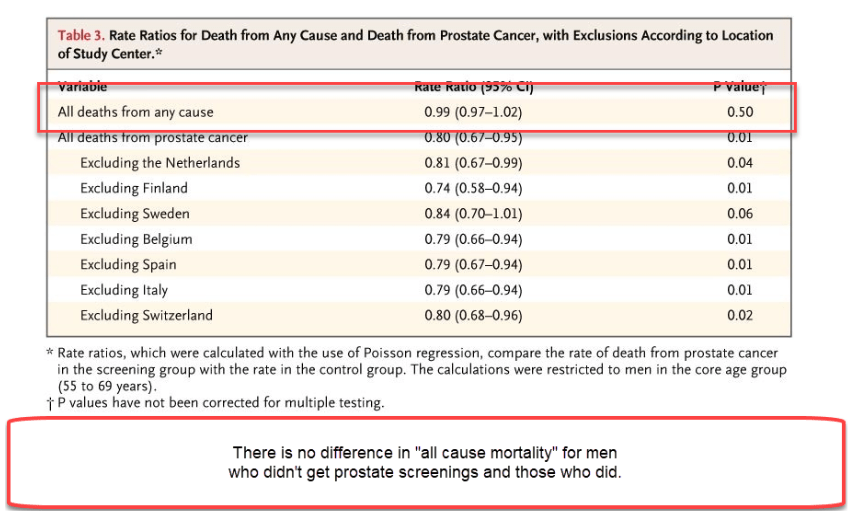
[cmamad id=”23780″ align=”center” tabid=”display-desktop” mobid=”display-desktop” stg=””]
Turns out, this test does NOT prolong life… here’s what I mean…
—-Important Message—-
How to get it up – even if you think you can’t
I’ve stumbled onto something completely different than anything I’ve ever discovered before…
This isn’t about techniques or exercises…
And it doesn’t involve any pills or Big Pharma products…
This is how I finally got good enough erections to enter her…
And this is how I achieved hours of bliss every week, even after struggling for a long time…

———-
Here’s why I NEVER get a prostate screening
Apparently, I like to buck trends. I’m not exactly a “rule follower” and I really never have been…
Part of that is because I spent a great deal of my teenage and young adult years in and out of hospitals with horrific asthma symptoms.
There’s nothing quite like the experience of gasping for breath just to stay alive to motivate you to find alternatives to your reality.
Ultimately, the doctors were very little help, and I ended up having to find my own treatment path.
And that’s what led me to where I am today AND to my refusal to do “medical tests” that aren’t going to prolong my life or give me a better quality of life.
And this is EXACTLY why I refuse to get prostate screenings.
Absolutely refuse.
So, here is where I have to put in a disclaimer. I’m not telling you not to get prostate screenings.
You have to come to your own decisions based on the evidence that affects your particular situation. I’m not a doctor and I can’t give you medical advice.
Okay… Now that I have that out of the way, let’s get into some of the evidence.

What do prostate screenings do anyway?
Men are told that between the ages of 50 and 70 they should get regular prostate screenings.
“Most medical organizations encourage men in their 50s to discuss the pros and cons of prostate cancer screening with their doctors.”
Specifically, men are encouraged to get the PSA (prostate-specific antigen) screenings that detect PSA in the blood.
“Prostate-specific antigen (PSA) is a protein produced by both cancerous (malignant) and noncancerous (benign) prostate tissue. A small amount of PSA normally enters the bloodstream… Prostate cancer cells usually make more PSA than do benign cells, causing PSA levels in your blood to rise.”
Sometimes these are combined with a digital rectal exam to “feel” for abnormalities in the prostate.
[cmamad id=”23781″ align=”center” tabid=”display-desktop” mobid=”display-desktop” stg=””]
PSA testing is sometimes combined with a digital rectal exam (DRE) to feel the prostate for abnormalities.
The idea here is to detect any abnormalities or cancer growth in the early stages BEFORE prostate cancer becomes life-threatening.
The problem is that, although prostate cancer CAN be very aggressive, in most cases it’s not.
Usually, it just sits around in the prostate until a guy dies of other causes.
I know that’s morbid, but it’s important for this discussion.
Prostate screenings do NOTHING to prevent death.
This is the big reason I don’t ever get prostate screenings.
I’ll say it again: Prostate screenings to nothing to prevent death.

Here’s the tricky bit…
When touting numbers, most studies report reductions in deaths from the diseases they’re trying to treat.
And you can see on the chart above, deaths from prostate cancer did go down when men were screened.
However, ALL-CAUSE mortality – meaning deaths from anything – stayed EXACTLY the same.
If you prevent a death from prostate cancer through screenings and then the person dies anyway… What was the point?
This is especially true since prostate screenings lead to a TON of false negatives…
And that leads to overtreatment and men losing their sexual and bladder function because of treatments that aren’t even going to extend life.
“Overdiagnosis and overtreatment are probably the most important adverse effects of prostate cancer screening…”
In my work of helping guys with erectile dysfunction regain their sexual function, I’ve seen the stories over and over again.
This overtreatment ends up with men who lose sexual function, are in a lot of pain, and who often lose some level of bladder control.
Not every treatment ends up like this. But it happens enough that I’m very, very skeptical about the benefits of these tests.
You have to decide if getting prostate screenings is worth it for you.
If you have a family history of very aggressive prostate cancer, the test might be worth it.
But if you don’t, you may want to consider the data and make a decision based on the actual risk and reward.
Personally, I’m never getting these screenings. What you do is up to you.
—-Important Message About the Prostate—-
Here’s what men who NEVER get prostate cancer are doing differently
I’ve discovered a special practice that men in their 90s and 100s are using to keep a healthy, happy prostate….
These men never have to worry about waking up four or five times a night to pee…
They never have to experience radiation or hormone therapy…
And they never have to worry about ever getting prostate cancer.
And believe it or not – these men are not using ANY medical treatment.
This special practice is 100% natural and keeps the prostate fully functioning for decades longer.
So a man can keep having a great sex life for as long as he is alive.
———-

- Screening and Prostate-Cancer Mortality in a Randomized European Study https://www.nejm.org/doi/full/10.1056/NEJMoa0810084
- Prostate cancer screening: Should you get a PSA test? https://www.mayoclinic.org/tests-procedures/psa-test/in-depth/prostate-cancer/art-20048087
- What Is Screening for Prostate Cancer? | CDC https://www.cdc.gov/cancer/prostate/basic_info/screening.htm
- Does prostate cancer screening matter? - Harvard Health https://www.health.harvard.edu/mens-health/does-prostate-cancer-screening-matter
